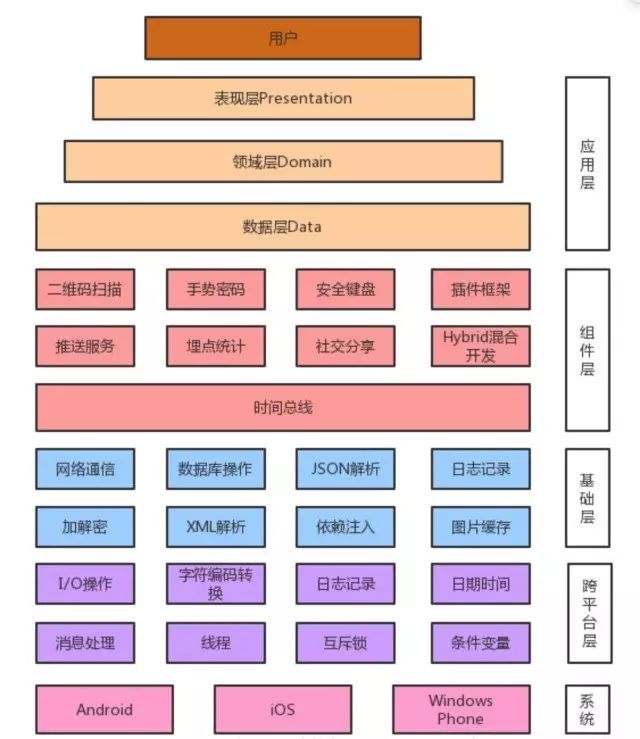转自:AndyJennifer
https://www.jianshu.com/p/5797b3d0ebd0
最近在学习Kotlin这门语言,在项目开发中,运用到了单例模式。因为其表达方式与Java是不同的。所以对不同单例模式的实现进行了分别探讨。主要单例模式实现如下:
-
饿汉式 -
懒汉式 -
线程安全的懒汉式 -
双重校验锁式 -
静态内部类式
一、饿汉式实现
//Java实现
public class SingletonDemo {
private static SingletonDemo instance=new SingletonDemo();
private SingletonDemo(){
}
public static SingletonDemo getInstance(){
return instance;
}
}//Kotlin实现
object SingletonDemo
-
Kotlin的对象声明
-
查看Kotlin对应字节码


public final class SingletonDemo {
public static final SingletonDemo INSTANCE;
private SingletonDemo(){}
static {
SingletonDemo var0 = new SingletonDemo();
INSTANCE = var0;
}
}二、懒汉式
public class SingletonDemo {
private static SingletonDemo instance;
private SingletonDemo(){}
public static SingletonDemo getInstance(){
if(instance==null){
instance=new SingletonDemo();
}
return instance;
}
}//Kotlin实现
class SingletonDemo private constructor() {
companion object {
private var instance: SingletonDemo? = null
get() {
if (field == null) {
field = SingletonDemo()
}
return field
}
fun get(): SingletonDemo{
//细心的小伙伴肯定发现了,这里不用getInstance作为为方法名,是因为在伴生对象声明时,内部已有getInstance方法,所以只能取其他名字
return instance!!
}
}
}三、线程安全的懒汉式
public class SingletonDemo {
private static SingletonDemo instance;
private SingletonDemo(){}
public static synchronized SingletonDemo getInstance(){//使用同步锁
if(instance==null){
instance=new SingletonDemo();
}
return instance;
}
}//Kotlin实现
class SingletonDemo private constructor() {
companion object {
private var instance: SingletonDemo? = null
get() {
if (field == null) {
field = SingletonDemo()
}
return field
}
@Synchronized
fun get(): SingletonDemo{
return instance!!
}
}
}四、双重校验锁式(Double Check)
public class SingletonDemo {
private volatile static SingletonDemo instance;
private SingletonDemo(){}
public static SingletonDemo getInstance(){
if(instance==null){
synchronized (SingletonDemo.class){
if(instance==null){
instance=new SingletonDemo();
}
}
}
return instance;
}
}//kotlin实现
class SingletonDemo private constructor() {
companion object {
val instance: SingletonDemo by lazy(mode = LazyThreadSafetyMode.SYNCHRONIZED) {
SingletonDemo() }
}
}-
Lazy内部实现
public fun <T> lazy(mode: LazyThreadSafetyMode, initializer: () -> T): Lazy<T> =
when (mode) {
LazyThreadSafetyMode.SYNCHRONIZED -> SynchronizedLazyImpl(initializer)
LazyThreadSafetyMode.PUBLICATION -> SafePublicationLazyImpl(initializer)
LazyThreadSafetyMode.NONE -> UnsafeLazyImpl(initializer)
}-
Lazy接口
SynchronizedLazyImpl实现了Lazy接口,Lazy具体接口如下:
//当前实例化对象,一旦实例化后,该对象不会再改变
public val value: T
//返回true表示,已经延迟实例化过了,false 表示,没有被实例化,
//一旦方法返回true,该方法会一直返回true,且不会再继续实例化
public fun isInitialized(): Boolean
}
private class SynchronizedLazyImpl<out T>(initializer: () -> T, lock: Any? = null) : Lazy<T>, Serializable {
private var initializer: (() -> T)? = initializer
@Volatile private var _value: Any? = UNINITIALIZED_VALUE
// final field is required to enable safe publication of constructed instance
private val lock = lock ?: this
override val value: T
get() {
val _v1 = _value
//判断是否已经初始化过,如果初始化过直接返回,不在调用高级函数内部逻辑
if (_v1 !== UNINITIALIZED_VALUE) {
@Suppress("UNCHECKED_CAST")
return _v1 as T
}
return synchronized(lock) {
val _v2 = _value
if (_v2 !== UNINITIALIZED_VALUE) {
@Suppress("UNCHECKED_CAST") (_v2 as T)
}
else {
val typedValue = initializer!!()//调用高级函数获取其返回值
_value = typedValue //将返回值赋值给_value,用于下次判断时,直接返回高级函数的返回值
initializer = null
typedValue
}
}
}
//省略部分代码
}//返回初始化的值。
public inline operator fun <T> Lazy<T>.getValue(thisRef: Any?, property: KProperty<*>): T = value
五、静态内部类式
public class SingletonDemo {
private static class SingletonHolder{
private static SingletonDemo instance=new SingletonDemo();
}
private SingletonDemo(){
System.out.println("Singleton has loaded");
}
public static SingletonDemo getInstance(){
return SingletonHolder.instance;
}
}//kotlin实现
class SingletonDemo private constructor() {
companion object {
val instance = SingletonHolder.holder
}
private object SingletonHolder {
val holder= SingletonDemo()
}
}补充
class SingletonDemo private constructor(private val property: Int) {//这里可以根据实际需求发生改变
companion object {
@Volatile private var instance: SingletonDemo? = null
fun getInstance(property: Int) =
instance ?: synchronized(this) {
instance ?: SingletonDemo(property).also { instance = it }
}
}
}– EOF –
说说梦想,谈谈感悟 ,聊聊技术,有啥要说的来github留言吧 https://github.com/cjx2328
你可能也喜欢Related Posts
- 随机文章
标签云集
-
vue
webpack
app设计
zabbix
数据库
图标设计
页面设计
python插件
css
移动端识别
PHP小技巧
electron开发
Redis
android
前端技术
mysql
adobe
docker命令
设计教程
iphone x
golang小技巧
交互设计
分布式
docker小技巧
php
swoole
docker
jupyter
docker的使用
前端开发
python
APP UI设计
mysql优化
nginx
APP设计参考
网页设计
ui设计
ios
react
树莓派
vue小技巧
JavaScript小技巧
k8s
设计灵感
linux
Java
大数据可视化
MySQL小知识
javascript
logo












